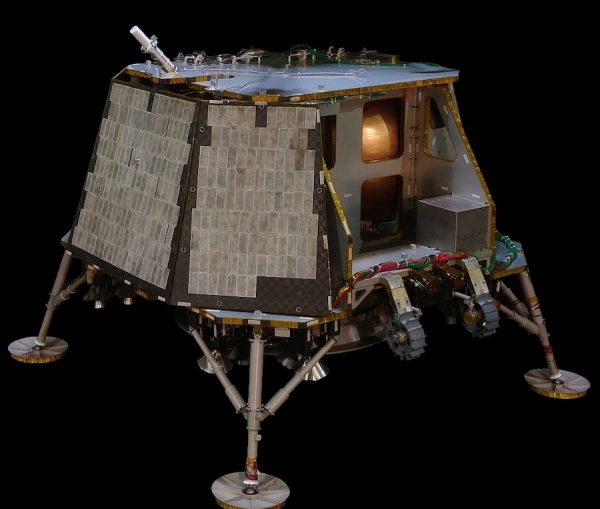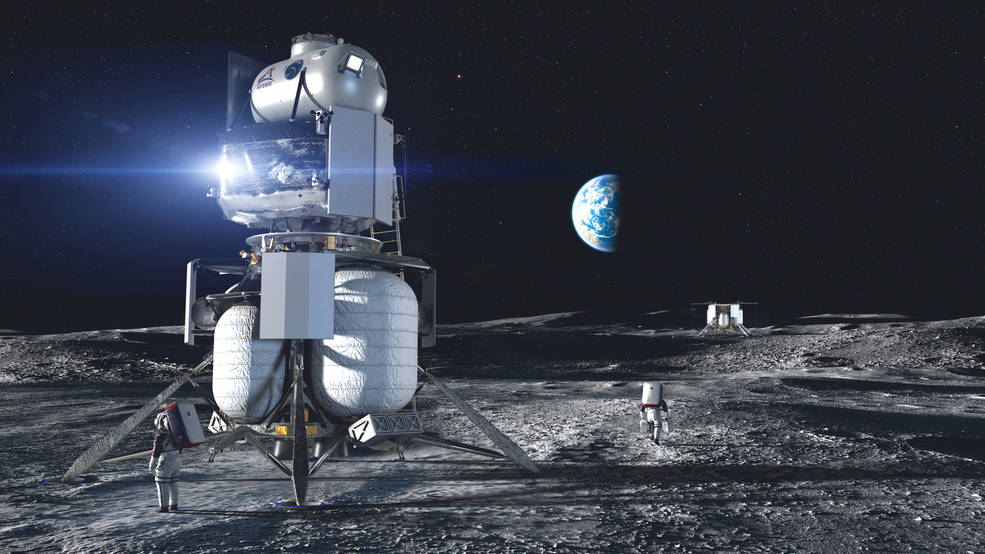

NASA will resume work with SpaceX under the Option A contract as soon as possible,” the space agency said in a statement after the ruling.īlue Origin responded by reiterating its concerns. “NASA was notified Thursday that the US Court of Federal Claims denied Blue Origin’s bid protest, upholding NASA’s selection of SpaceX to develop and demonstrate a modern human lunar lander. However, the Court of Federal Claims also upheld NASA’s decision, dealing a final blow to Blue Origin’s attempts to overturn the award. The company responded by taking the matter to the Court of Federal Claims claiming the GAO wasn't able to address "fundamental issues" with the original decision because of its limited jurisdiction. The move prompted NASA to inform SpaceX that work had to stop until the GAO resolved the matter.īut despite their efforts, the GAO rejected Blue Origin’s appeal in July. Because of that, we’ve filed a protest with the GAO”. “In NASA’s own words, it has made a ‘high risk’ selection,” said Blue Origin back in April “Their decision eliminates opportunities for competition, significantly narrows the supply base, and not only delays, but also endangers America’s return to the Moon. NASA’s HLS decision – an outcome that was put down to funding issues – did not sit well with Blue Origin who subsequently filed protests with the US’s Government Accountability Office (GAO) to lodge their dissatisfaction. A strategy that has served it well in the past with its Commercial Crew Programme of the two competitors selected to provide crew transportation services to and from the International Space Station (ISS), only SpaceX’s Crew Dragon has made it to the orbital station, Boeing’s CST-100 Starliner spacecraft still remains grounded. The space agency usually selects more than one company to establish its systems in case any problems arise during development. Its creator, Elon Musk, envisions that eventually Starship will be used a fully reusable launch and landing system designed for travel to the Moon, Mars, and other destinations. NASA came under fire from Jeff Bezos’ rocket company Blue Origin back in April, after the space agency announced that SpaceX would be the sole provider for its Human Landing System (HLS) with its Starship proposal. The justification for the ruling was not immediately made public, although judge Richard Hertling who delivered the dismissal at a hearing on Thursday, has requested the parties in the lawsuit to agree to a redacted version of his opinion by 18 November, that could be released publicly. NASA also stated that there will be future contracts for private space companies to bid on, including the construction of a long-term human presence on the moon.A US federal judge has dismissed Blue Origin’s lawsuit seeking to overturn NASA’s single contract to SpaceX for the development of a lunar lander. Work on the Artemis program was paused during litigation. NASA issued a press release stating that they would begin work on the SpaceX contract immediately. A redacted copy of Judge Hertling’s opinion will be released on November 18. The order by Judge Hertling dismissed Blue Origin’s claims but does not provide the court’s reasoning. Disputes regarding awards of federal contracts are often filed in this court, such as in this case.īlue Origin claimed that NASA selectively enforced safety requirements in the bidding process, allowing SpaceX to proceed with a complex and risky design. Congress created the modern version of the court through legislation in 1982. The court is a specialized court for monetary claims against the US government. The contract, worth $2.9 billion, engages SpaceX to transport NASA astronauts to the moon for the agency’s Artemis missions.īlue Origin filed suit in the US Court of Federal Claims in August. NASA awarded SpaceX the contract to develop the agency’s Human Landing System in April.

The US Court of Federal Claims on Thursday ruled against Jeff Bezos’s Blue Origin in a lawsuit contesting NASA’s decision to award a lucrative contract to rival SpaceX.


 0 kommentar(er)
0 kommentar(er)
